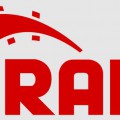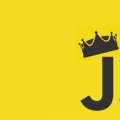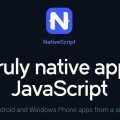Is PHP Still Relevant? Exploring Modern Alternatives
— November 23, 2024PHP has long been the default choice for web development. Its popularity and history, going back to the 1990s, have made it a trusted language for many developers. In fact, about 79.1% of websites use PHP for server-side programming. But is PHP the only choice for web projects? Is it the best option, or could other languages provide better solutions for web development?
In this article, we’ll explore why you might consider alternatives to PHP and look at the most popular programming languages that could serve as powerful substitutes for PHP in web development.
Why Consider Alternatives to PHP?
PHP’s widespread use and reliability are undeniable, but it’s not without its drawbacks. Some developers, including those with years of experience, may wonder if another language might offer better performance, flexibility, or ease of use. While PHP works well for many projects, it’s not always the best fit for every situation. There are several reasons why PHP might not be the best choice for all developers or companies.
A common criticism is that PHP’s “forgiving” nature, which allows developers to avoid defining variable types, can lead to errors. These errors, often involving performance or security issues, can be challenging to address. Additionally, PHP’s performance can be slower compared to other languages, which may be especially problematic in large-scale applications or websites where speed is critical. PHP is an interpreted language, which makes it slower than compiled languages. Performance issues can arise from inefficient loops, poor cache management, or unoptimized string operations. These factors can lead to frustrating delays in project completion or a poor user experience.
Another issue with PHP is its lack of a clear development philosophy. While this may appeal to developers who prefer flexibility, others may find it problematic. The lack of structure can make it harder for developers to follow consistent practices, leading to code that is harder to maintain and troubleshoot.
Given these challenges, developers may be inclined to consider alternatives that provide better performance, security, and structure. With a broad array of languages to choose from, it’s worth exploring other options before committing to PHP for your next web development project.
The 7 Most Powerful PHP Alternatives
When exploring alternatives to PHP, several languages stand out as strong contenders. Each has unique features and capabilities that can address specific needs in web application development.
Python
Python is one of the most popular programming languages in the world and a solid alternative to PHP. Known for its high performance, Python excels in handling large data sets and performing data analysis. This makes it an ideal choice for web projects that involve complex data processing or automation. Python’s built-in functions for web development make it a great tool for speeding up development while reducing costs. Additionally, Python plays a crucial role in machine learning, allowing developers to integrate advanced features like smart algorithms into web applications.
While Python offers great versatility and power, it does have some limitations. It can be inefficient in terms of memory usage, and its runtime can be slower than other languages. However, for data-intensive applications and projects requiring machine learning, Python’s advantages often outweigh these downsides.
Java
Java has been a staple of the programming world for decades. It is a strongly-typed language, which helps developers write cleaner, more structured code. This reduces the chances of errors and makes the development process more predictable. Java’s support for concurrency and parallel task execution allows it to perform well even in complex applications. It also excels in creating modular web applications, making it easier to update or scale applications as they grow.
Java’s portability and cross-platform capabilities are other advantages. The language’s extensive ecosystem of frameworks and libraries enables rapid development, and its security features make it a reliable option for web projects. However, Java does require more time to compile compared to interpreted languages like PHP, and it lacks a native backup facility.
Go (Golang)
Go, developed by Google, is a newer programming language but has quickly gained popularity due to its speed and efficiency. Known for its simple syntax, Go makes it easy for developers to write scalable, high-performance applications. One of Go’s standout features is its ability to handle concurrency, which is crucial for building distributed systems or cloud-based applications. Go’s streamlined design prioritizes simplicity and speed, which makes it ideal for performance-critical web applications.
Although Go is relatively young, its clean and effective approach makes it a viable alternative to PHP. The language’s ecosystem is still growing, and some error management tools are not as robust as in other languages. Still, Golang is an excellent choice for developers who want fast and scalable applications with minimal overhead.
JavaScript
JavaScript is widely regarded as one of the most powerful languages in web development. It is unique in that it can be used for both client-side and server-side programming, making it a versatile language for full-stack development. JavaScript enables developers to create dynamic, interactive websites and applications, with features like animations, maps, and real-time updates. Its large community and numerous libraries and frameworks make it easy for developers to find support and tools for almost any project.
While JavaScript excels in web development, it has some downsides. Its permissiveness can lead to code that is difficult to debug, and because JavaScript operates on the client-side, security issues can arise. Despite these challenges, JavaScript’s popularity and utility make it a compelling alternative to PHP for many web projects.
Ruby
Ruby is known for its ease of use and simplicity, making it an excellent choice for beginners and experienced developers alike. Ruby is dynamic and highly productive, allowing developers to create powerful web applications quickly. Ruby on Rails, one of the most popular web frameworks in the world, extends Ruby’s capabilities, providing a structured, organized approach to web development.
While Ruby’s simplicity is an advantage, it does come with some trade-offs. Performance can be slower compared to other languages, and its small community means fewer resources are available compared to more widely used languages like JavaScript or Python. However, Ruby remains a popular choice for building web applications, especially for startups or smaller projects.
C#
C# is a modern, object-oriented programming language developed by Microsoft. It is part of the .NET ecosystem, which provides many libraries and tools to facilitate development. C# is known for its stability, user-friendliness, and flexibility. It can be used for a wide range of projects beyond web development, such as desktop applications and game development.
While C# is an excellent language, it is more commonly used for non-web applications. However, with the right tools and frameworks, it can be a great alternative to PHP, particularly if you’re developing applications that need to integrate with the Microsoft ecosystem or if you require stable and scalable solutions.
Elixir
Elixir is a newer functional programming language known for its scalability and performance. It is built on the Erlang virtual machine, which was designed to support highly concurrent and fault-tolerant systems. Elixir is especially suited for real-time applications and distributed systems, such as chat applications or live data processing.
Elixir’s learning curve may be steep for developers accustomed to other languages, and the language’s ecosystem is still maturing. However, its ability to handle large numbers of concurrent processes with ease makes it a powerful choice for high-performance web applications.
How to Pick the Right PHP Alternative for Your Project
When selecting a PHP alternative for your web development project, it is essential to understand the specific needs, goals, and challenges you face with PHP. Every programming language has its strengths and weaknesses. The right choice depends on several factors, such as project requirements, the expertise of your development team, and long-term goals. Below is a detailed guide on how to make the best decision.
Identifying Your Project’s Requirements
Before deciding on a PHP alternative, it is crucial to define your project’s requirements. Consider the type of web application you’re building. Are you developing a simple website, a complex web application, or a large-scale enterprise system? The project’s complexity will significantly influence the best language choice.
Another key factor is the performance requirements. If your project needs to handle large amounts of data or requires fast processing, languages that are optimized for performance, such as Go or Java, might be more suitable. On the other hand, if rapid development and ease of use are more important, languages like Ruby or Python, which offer powerful frameworks for quick application building, could be a better fit.
Consider how flexible the language needs to be. If your project requires constant changes or rapid iterations, choosing a language with a rich set of libraries or frameworks can ease the development process. Ruby on Rails or Python’s Django, for example, allow developers to build applications quickly and efficiently.
Considering Developer Expertise and Team Skills
The expertise of your development team plays a significant role in your language choice. If your team is already highly skilled in PHP, it may not be worth switching to another language unless there are clear and compelling advantages. Switching to a new language can incur additional costs and time for training, especially if the team has limited experience with the alternative language.
For instance, if your team is proficient in Python, leveraging its strengths, such as Django for web development or TensorFlow for machine learning, could result in faster development and higher project quality. Similarly, if your team is well-versed in JavaScript, using Node.js or even JavaScript frameworks such as React or Vue.js can streamline both frontend and backend development.
It is also essential to consider the tools and frameworks the team is familiar with. If your developers are accustomed to a specific framework like Ruby on Rails, choosing a language that integrates well with that framework can speed up development. Familiarity with a specific toolset can have a positive impact on project efficiency and outcomes.
Evaluating Performance Needs
Performance considerations should be a central focus when deciding on an alternative to PHP. While PHP is adequate for many use cases, it may fall short in terms of raw performance, especially when dealing with high-traffic applications or complex tasks. For example, PHP may struggle with handling real-time data processing or managing large datasets efficiently.
Languages like Java and Go offer much better performance, particularly in high-demand environments where concurrency or parallel processing is required. Go, for instance, was specifically designed for performance and scalability, making it an excellent choice for handling concurrent processes. Java also benefits from its long-standing performance optimizations, especially in enterprise-level applications.
Even Python, while often considered slower than compiled languages, can offer high performance when used correctly. Python’s versatility and optimization libraries, like NumPy for handling numerical data, allow it to compete with other faster languages in specific domains, such as data science and machine learning.
Assessing the Ecosystem and Community Support
When choosing a programming language, it’s important to assess the ecosystem surrounding it. A large and active community offers numerous resources, tools, and frameworks that can help developers solve problems and add new features quickly. Languages with strong community support often have well-maintained libraries, abundant tutorials, and more user feedback to guide your development process.
For example, JavaScript benefits from one of the largest developer communities, especially for web development, with robust resources for both front-end and back-end needs. Libraries like React or Angular for the frontend, and Node.js for backend, provide a comprehensive ecosystem. Python also has an extensive ecosystem, with libraries for everything from web development (Django, Flask) to data science (TensorFlow, Scikit-learn).
On the other hand, languages like Go and Elixir, while promising, might have smaller communities and fewer resources. While these languages are growing in popularity, the availability of frameworks, documentation, and community-driven solutions may be less than what you find with more established languages.
Considering Long-Term Maintainability
Long-term maintainability is another important factor when selecting a PHP alternative. A project that starts with rapid development may eventually need ongoing maintenance and scaling. It’s crucial to choose a language that is easy to maintain over time. Some languages, such as Java and Python, are known for their readability, structure, and documentation, making it easier for new developers to understand and maintain the codebase.
Java, with its static typing, helps prevent many types of bugs during the development process, making the code more predictable and less prone to errors. Its strong object-oriented structure allows for better organization of code, which simplifies debugging and refactoring in the long run. Similarly, Python’s simple and readable syntax makes it easy to maintain, even for developers unfamiliar with the project.
In contrast, PHP code can become difficult to maintain over time, particularly if best practices are not followed. PHP has been criticized for allowing a “spaghetti code” approach where the codebase can quickly become messy and hard to follow. While modern PHP frameworks like Laravel offer solutions for better structure, legacy PHP applications can still suffer from maintenance challenges.
Understanding the Project’s Timeframe
When working under tight deadlines, the speed of development becomes a significant concern. If your project requires quick development cycles, languages with a lower learning curve and frameworks that allow for rapid development can save time. Ruby, for instance, is known for its quick development cycle, particularly when using Ruby on Rails. This framework promotes conventions over configurations, allowing developers to focus more on building features rather than wrestling with complex setup.
In contrast, languages like Java or C# require more upfront planning and coding time. These languages are typically more verbose and structured, meaning that developers must spend more time on initial development. However, they offer long-term scalability and robustness, which may benefit projects with long timelines or enterprise-level requirements.
For fast-paced projects, it’s important to weigh the urgency of speed against the need for long-term maintainability and scalability. If time is a critical factor, languages that favor quick iterations without sacrificing too much in terms of performance or scalability may be the best fit.
Assessing the Cost of Development
Another factor that cannot be overlooked is the cost of development. The cost of a programming language is often determined by factors such as the availability of skilled developers and the resources needed to support the project. Some languages, such as Java and Go, require developers with specialized knowledge, which may drive up the overall cost of the project.
For example, Java developers are typically more expensive due to the complexity and expertise required for enterprise applications. Similarly, Go’s growing popularity has led to a higher demand for developers, which can increase hiring costs. Conversely, languages like Python and Ruby tend to have larger pools of developers, which could potentially reduce hiring expenses.
Additionally, some languages require more resources for operation. For instance, Python can be memory-intensive when dealing with larger applications. If you are working on a project that demands high computational power, the infrastructure costs of running Python applications could exceed those of more efficient alternatives like Go or Java.
When considering development costs, think not only about hiring developers but also about the long-term operational expenses. Balancing these factors will help you make an informed choice that aligns with your budget and future growth.
Aligning with Your Business Objectives
Your choice of programming language should align with your business goals and objectives. Consider your company’s broader priorities, such as speed-to-market, scalability, or long-term growth. If your goal is to launch a product quickly, you may prioritize languages like Ruby or JavaScript, which enable faster development cycles. These languages are known for their ability to rapidly produce high-quality web applications, which can help meet aggressive deadlines.
For projects with a long-term vision that require high scalability or integration with complex systems, languages like Java or Go might be more suitable. Java, in particular, is a great choice for enterprise-level applications due to its stability, scalability, and wide adoption in the industry. Similarly, Go’s concurrency model and performance optimizations make it an excellent choice for applications that require fast data processing and scalability.
If your project involves data-heavy applications, machine learning, or AI, Python is often the best choice due to its extensive libraries and frameworks in the field. Python’s popularity in data science and AI is well-established, and its libraries, such as TensorFlow and PyTorch, make it a natural fit for projects in these domains.
Conclusion
When choosing an alternative to PHP, it’s essential to consider the specific needs of your project. If you’re looking for a language that offers high performance and scalability, Go or Java might be the best options. For data-driven applications, Python shines with its data analysis and machine learning capabilities. JavaScript and Ruby are excellent choices if you need a language that supports both front-end and back-end development, while C# is a strong contender for developers already working within the Microsoft ecosystem. Elixir, while more niche, is perfect for highly concurrent and fault-tolerant systems.
Before making a decision, you should evaluate the issues you’re experiencing with PHP and determine whether they can be resolved with the help of experienced PHP developers. If you still prefer another language, the alternatives listed above offer strong features and performance for a wide range of web projects.
PHP remains a powerful tool for many developers, but these alternatives can offer solutions to specific challenges or provide features that align better with your development goals. Explore these languages to find the one that best fits your project’s needs and take your web development to the next level.









